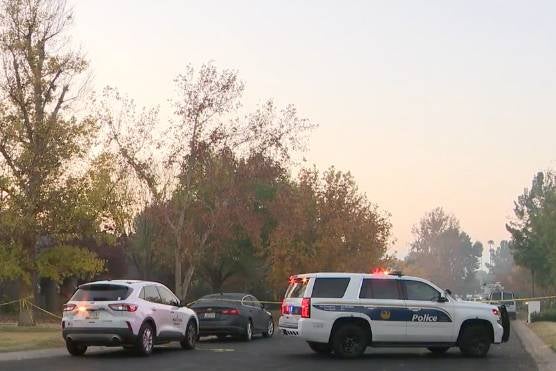An Arizona lawmaker has proposed a bill that would give state and local police agencies a $2,500 “bounty” for each deportation of an unauthorized migrant they help secure.
The proposal, Senate Bill 1111, would tax international remittance payments made from inside the state and use this money to fund the bounty program.
“What we don’t want are criminal illegal aliens on our streets. So in line with the wildly popular mass deportation that President Trump is currently engaging in, we are going to ensure that our law enforcement is doing its job to support that effort and make sure our streets are safe,” the bill’s Republican sponsor, Senator Jake Hoffman, told KPHO.
Migrant advocates have warned that the proposal could cause even lawful migrants to fear engaging with police, and Arizona’s Democratic governor Katie Hobbs has said she will not sign the bill.
"There's no way in Hell the Governor signs a tax hike into law, especially one that puts a bounty on the heads of innocent people who have worked hard, paid taxes and lived in their communities for decades," a spokesperson for Hobbs told Arizona Republic. "Arizonans want border security, they don't want to turn hard working law enforcement officers into bounty hunters."
Arizona, a border state with purple politics, has long grappled with whether and to what extent local law enforcement should assist in immigration enforcement, an area of longstanding federal power.

In November, Arizona voters approved Proposition 314, which would make it a state crime in addition to a federal civil violation to cross the border without authorization, as well as empowering state judges to order deportations.
The measure is on hold pending an appeals court ruling.
Some Arizona sheriffs have previously expressed concerns over becoming a part of the federal immigration enforcement apparatus, arguing it would tax limited resources and fall outside their powers.
“There’s just nowhere in my duties or responsibilities as the sheriff here that I should be involved or engaged” in such deportations operations, Pima County Sheriff Chris Nanos recently told KTAR. “That’s not what we’re here to do.”
“We’re not doing their job.”
State lawmakers have proposed a variety of new bills on immigration since Trump took office, including one that would require all state and local police agencies to sign cooperation agreements with the federal Immigration and Customs Enforcement agency, and another that would bar such cooperation.

Four Arizona law enforcement agencies — Yavapai, Pinal and La Paz counties, and the city of Mesa — already have cooperation agreements, known 287(g) deals.
Backers argue they help federal officials enforcement immigration violations more effectively by having local police help identify and detain offenders, while critics argue they encourage unlawful detention and often take place in departments with documented histories of racial profiling.
These efforts to assist Trump are nothing new.
Prior to Trump taking office again, Arizona’s then-Governor Doug Ducey tried to build a state border wall with shipping containers, though a federal lawsuit then forced him to take those down in 2022.
As The Independent has reported, the state remains the site of numerous environmentally devastating, largely ineffective federal border wall construction projects that took place throughout the Biden and Trump administrations.

Arizona also has a long history of controversial immigration enforcement by local police.
The sheriff’s office in Maricopa County, home to Phoenix, has been under a federally appointed monitor since 2013, stemming from a finding in a class action lawsuit that the department engaged in racial profiling against Latinos as part of then-Sheriff Joe Arpaio’s police-driven immigration crackdown.
Over a decade later, federal monitors say the department still is falling short on eliminating bias from its traffic stops and clearing a backlog of internal investigations.
The Trump administration will need the cooperation of local police to fulfill its promises of a nationwide deportation operation removing millions of people from the country, and the president has long sought to valorize aggressive local law enforcement involvement in immigration.
Trump’s first pardon, in 2017, was of Arpaio, who was serving a 6-month sentence for disobeying a federal court order to stop racial profiling.
The new administration has said it will attempt to block federal funding to so-called sanctuary cities, jurisdictions that limit cooperation with federal immigration operations.
Trump border czar Tom Homan has also threatened local leaders with prosecution if they are deemed to have impeded immigration operations.







